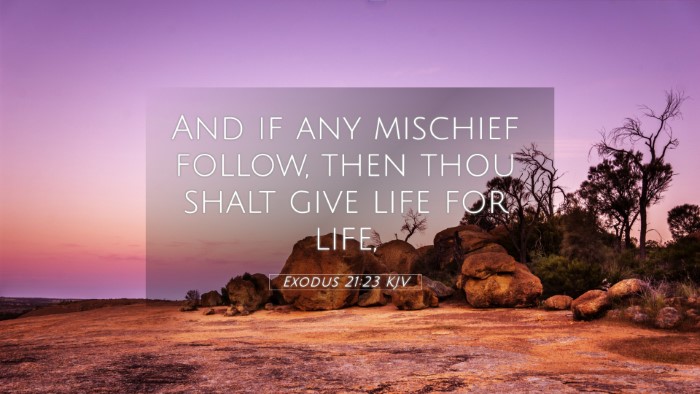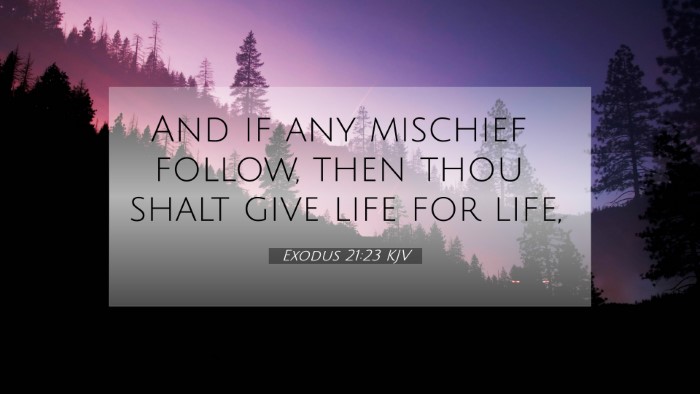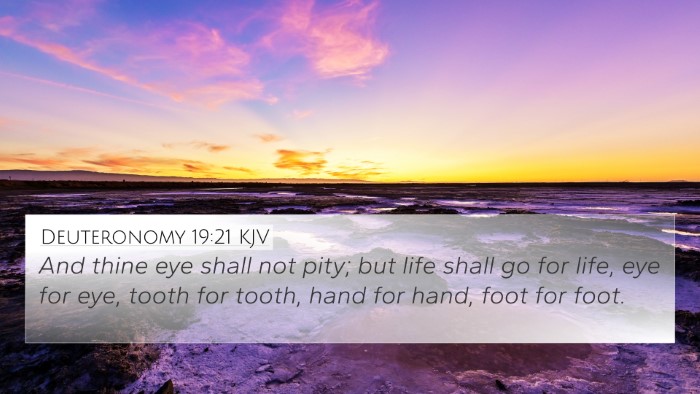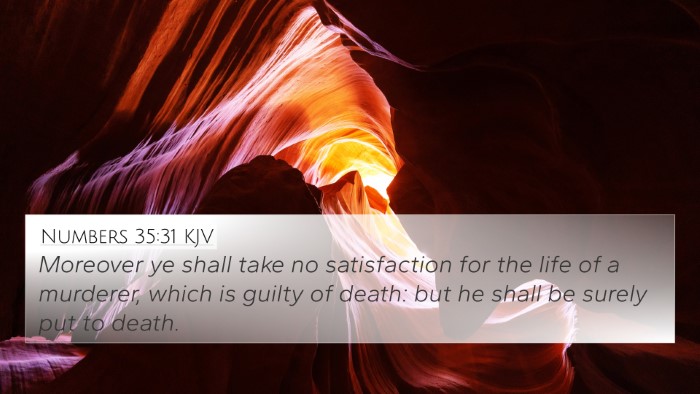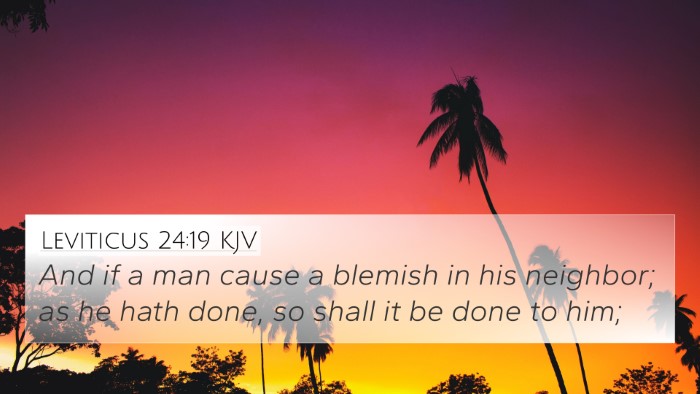Understanding Exodus 21:23
Exodus 21:23 states: "But if there is serious injury, you are to take life for life, eye for eye, tooth for tooth, hand for hand, foot for foot." This verse is a part of the mosaic law given to the Israelites and serves as a significant principle regarding justice and retribution.
Summary of Key Meanings
The profundity of this verse lies in its illustration of the principle of proportional justice. It emphasizes that punishment should equal the severity of the crime, which is commonly referred to as the "lex talionis" or law of retaliation. This establishes a foundational understanding of justice that has impacted legal systems through history.
-
Proportionality in Justice:
Matthew Henry's commentary explicates that the law reflects a balanced view of justice, ensuring that the punishment corresponds to the offense. It serves not only as a guide for human justice but also as a reflection of God's fairness in administering justice.
-
Preventing Excessive Punishment:
Albert Barnes notes that the intention of this law is to limit revenge. It prevents individuals from taking justice into their own hands in a way that results in disproportionate retribution.
-
Application in Society:
Adam Clarke highlights the relevance of such statutes in society, indicating that they offer clear, actionable guidelines for resolving disputes and administering justice in a communal context.
Cross-References of Exodus 21:23
Exodus 21:23 can be examined through various related scriptures to enrich our understanding of its implications. Below are some of the significant Bible cross-references:
- Leviticus 24:19-20: "Anyone who injures their neighbor is to receive the same treatment..." This reinforces the principle of equivalent retaliation.
- Matthew 5:38-39: Jesus refers to this law but introduces the concept of turning the other cheek, emphasizing mercy over strict justice.
- Deuteronomy 19:21: "Show no pity: life for life, eye for eye..." Here the principle of lex talionis is reiterated within the context of judicial procedure.
- Romans 12:19: "Do not take revenge, my dear friends, but leave room for God's wrath..." This reflects the New Testament shift from strict justice to divine retribution.
- Genesis 9:6: "Whoever sheds human blood, by humans shall their blood be shed..." A statement establishing the sanctity of life and the serious consequences of taking it.
- James 2:13: "Judgment without mercy will be shown to anyone who has not been merciful..." A New Testament reiteration of mercy overcoming judgment.
- Galatians 6:7: "A man reaps what he sows..." This passage builds on the idea of consequence aligning with actions, which is in alignment with Exodus 21:23.
Thematic Connections
When interconnecting Bible verses through a thematic lens, the principle of justice appears across both Testaments, creating a dialogue between the Old and New Testament teachings. Examples include:
-
Justice vs. Mercy:
This theme is profoundly present in Exodus 21:23 and the opposing New Testament teachings, such as those found in Matthew 5, where Jesus reframes the understanding of retaliation.
-
Human Rights and Dignity:
Leviticus 24 extends the dialogue on justice to encompass the worth of every individual, indicating the necessity of fairness in judicial systems.
Tools for Bible Cross-Referencing
To facilitate deeper study, engaging tools such as a Bible concordance or a Bible cross-reference guide can prove beneficial. These resources empower one to explore connections across Scriptures, enabling a broader understanding of themes, contextual backgrounds, and theological insights.
Conclusion
In conclusion, Exodus 21:23 serves as a crucial framework for understanding justice and retribution in a biblical context. Analyzing this verse alongside its cross-referenced scriptures reveals a rich tapestry of legal, moral, and spiritual insights. The balance it seeks between justice and mercy is a theme that resonates throughout the Bible’s narrative, guiding our understanding of human relationships and divine principles.

